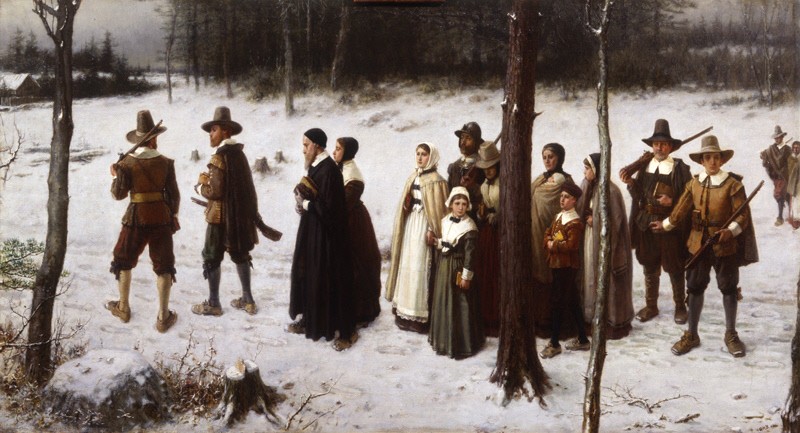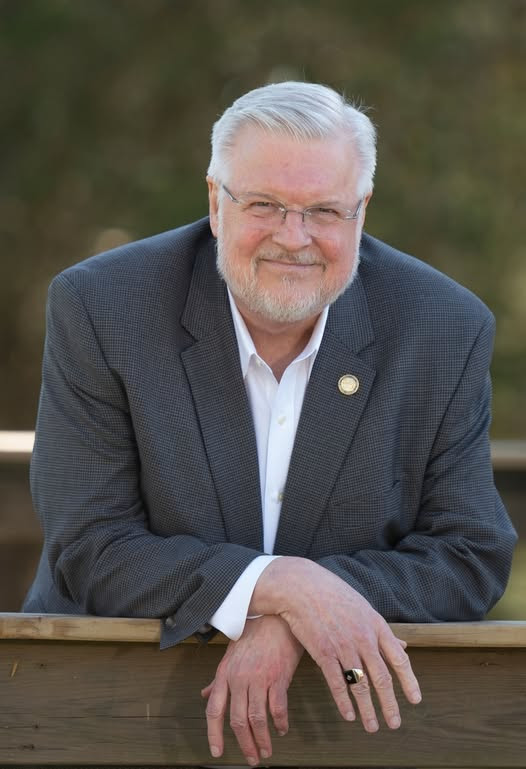by Rev. Mark Creech, D.H.L.
RevMarkCreech.org
We live in an age of instant weather alerts, satellite imaging, GPS navigation, and rescue teams on standby. At any given moment, we can reach someone by phone, send a distress signal, or receive life-saving information from a device in our pocket. But when the Pilgrims set out on the Mayflower, they possessed none of these things. They stepped into an uncharted world with no radio, no radar, no maps of the coastline, no forecast of coming storms, no way to call for help, and no way to know if another human was even within a thousand miles. Their entire universe was a single, crowded wooden ship bracing itself against the winter Atlantic.
The storms that battered them were relentless. The ship’s main beam cracked under the strain. Equipment was ripped loose. Water poured in. The Pilgrims were not courageous because they had choices; they were courageous because they had none. Their only certainty was that God had called them—and that nothing but His providence stood between them and the deep.
William Bradford, the man who would become the principal governor, historian, and spiritual anchor of the Plymouth Colony, did not enter the New World in triumph. He entered it in heartbreak. His wife, Dorothy, had been his companion since he was a teenager, following him from England to Holland, sharing in persecution, poverty, and the long hope of a new beginning together. She boarded the Mayflower with him at only twenty-three years old, leaving behind their little son in Holland with the hope that they would send for him once they were settled. After sixty-six days of cramped quarters, storms, and fear, they finally reached the shores of Cape Cod. But before Dorothy could set foot on the new land, she slipped from the ship into the icy harbor and drowned.
Few moments in American history have carried such private grief. To survive the merciless Atlantic only to lose the person with whom you longed to share a new life must have tested Bradford’s understanding of a good and just God. One can imagine His grief. Yet even then, he did not turn from the God he had followed across the ocean. He trusted God implicitly in his loss.
The first winter brought horrors to the Pilgrims that defy imagination. Disease, hunger, and exposure swept through the small company. By spring, half of them had died. Yet one of the most sobering facts of that terrible season is something few Americans have ever heard. Because the Indians watched them closely and the Pilgrims feared their weakness would be exposed, they buried their dead at night and leveled the ground so no one would know how many of their ranks had fallen. No markers. No memorial stones. Just smoothed earth hiding unthinkable sorrow – an act of quiet desperation and steadfast faith.
The trials seemed unending. In 1623, as Bradford records in Of Plymouth Plantation, a scorching drought threatened to destroy their first real crop. The corn curled on its stalks. Leaves turned brittle. Every hope for survival withered. But the Pilgrims called for a day of fasting and prayer. They humbled themselves before God, and He answered with rain. Bradford wrote that the skies opened in such a gentle and sustained way that even the Indians marveled at what they believed was the direct intervention of the Pilgrims’ God.
It was out of such struggles – not ease or plenty – that the first Thanksgiving was born. This is why it is so tragic to see how the holiday is being reframed today. Increasingly, what was once a holy day of gratitude has been renamed by many as “Friendsgiving,” a warm-sounding word that quietly strips the day of its true meaning. It turns a sacred moment of worship into nothing more than a social gathering. It reduces a story of providence and prayer to the notion of a friendly harvest meal between neighbors. It reflects a modern retelling of the Pilgrim story as little more than a cheerful get-together with the Indians – an image that manages to be sentimental, historically shallow, and spiritually empty all at once.
The Pilgrims weren’t celebrating community for community’s sake. They weren’t lifting a toast to friendship or simply commemorating their survival. They were bowing before the God whom they trusted even in great hardship – the God who had preserved them in a year of nearly unrelieved sorrow. Their gratitude was vertical before it was horizontal – directed heavenward to the God whose mercies had sustained them when all earthly hopes had failed.
This is something America knows little about. We have become accustomed to a gratitude that depends on visible blessings, on circumstances that make sense to us, on results we can measure. But the Pilgrims remind us that God works most deeply when our lives seem to be falling apart. Their hardships were not signs of God’s absence; they were the soil in which something far greater was taking root.
In his 1934 book Sources of Power in Famous Lives, Walter G. Erdhman noted that through these trials the Pilgrims were sowing “seeds of liberty that would one day flower into a republic.” They did not see the nation that would emerge from their obedience to God, their efforts together, their many sacrifices. They could not have imagined how their courage, humility, and perseverance would ripple through the centuries to reach us. They just believed God in the dark.
The Thanksgiving holiday is not a brief sentimental pause in the calendar wedged between Halloween’s spook-fest and Christmas’s materialism. It is the forgotten holy day that calls us back to the rugged faith of those who thanked God when life was anything but easy – when dreams collapsed, when expectations died, and when nothing made sense except the character of the God who never fails those who tenaciously believe in His goodness, regardless of what their circumstances may be telling them. Thanksgiving summons us to have faith when reasons are hidden, and when God’s providence is wrapped in mystery. The God who brought the Pilgrims through storm, grief, hunger, and profound loss is the same God who plants seeds in our own hardships – seeds that, in His time, will bloom into blessings far greater than anything we could have ever imagined.
This is the Thanksgiving America now knows too little about.
Painting: By George Henry Boughton – https://www.nyhistory.org/exhibit/pilgrims-going-church-0, Public Domain, https://commons.wikimedia.org/w/index.php?curid=308136


